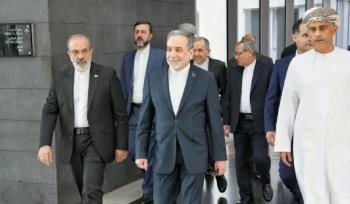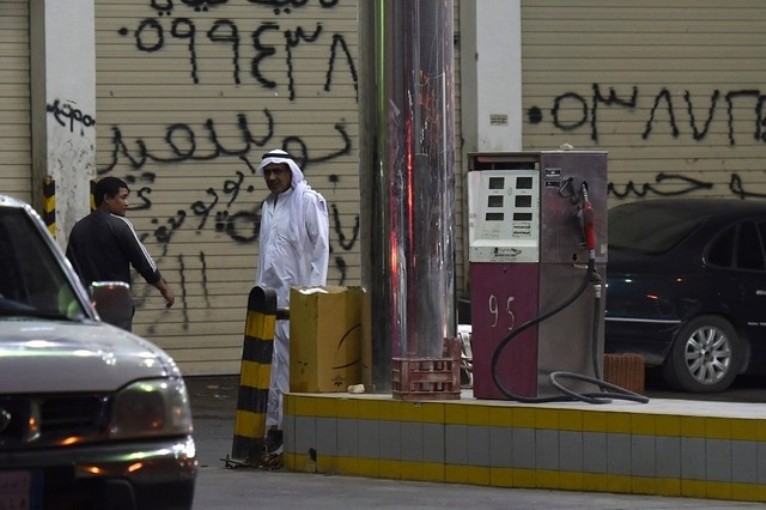Alwaght- Petrol prices in Bahrain, Saudi Arabia and some other Persian Gulf States were have been increased as part of the effort of the monarchies to boost revenues hit by slumping oil prices and involvement in regional conflicts.
The Bahraini regime’s cabinet said in a statement carried by state news agency BNA on Monday that its weekly meeting set the new price for super fuel at 160 Bahraini fils ($0.424) per litre from 100 fils, while the price for regular fuel would be raised to 125 fils per litre from 90 fils. The new prices will take effect on Tuesday.
Like other Persian Gulf oil-exporting states, Bahrain has for many years subsidized goods and services such as food, fuel, electricity and water, keeping prices ultra-low in an effort to buy loyalty for the ruling monarchy.
But since its oil income began to fall last year, the Aal Khalifa ruling regime’s budget deficit has widened and the subsidies have become much harder for Bahrain to afford.
Meanwhile the Saudi regime has revealed a series of fuel-related subsidy reforms to lower current expenditures and bolster the monarchy’s finances dented by the downturn in global oil prices and direct involvement in destabilizing regional countries including Syria and Iraq by financing terrorist groups and engaging in an endless and brutal aggression against Yemen.
The new measures imposed by the Saudi regime on the kingdom’s poor citizens include a 50 per cent increase in higher quality 95-octane petrol prices, a 66 per cent increase in lower quality 91-grade petrol prices, and a 74 per cent increase in diesel fuel prices.
Saudi Arabia is particularly vulnerable to oil price declines because oil and gas-related revenues have historically accounted for around 90 per cent of government revenues.
Experts say the recent escalation in geopolitical tensions with Iran following the fallout from the execution of a prominent Islamic scholar Sheikh Nimr Baqir alNimr in Saudi Arabia will likely add to fiscal pressures.
The warmongering Saudi regime’s 2016 budget has allocated 25 per cent of its spending on military and security services alone, much higher than the US at around 15 per cent of total government spending.
The Saudi regime has been blamed for destabilizing global oil market by pumping more crude and driving the prices to record lows.
Saudi Arabia in 2015 increased production by 1.5 million barrels per day, thus effectively destabilizing the situation on the market.
- Iran’s FM Says Indirect Talks with US Show Solid Progress, Path Forward Now Clear
- How Do Americans Look at a Potential War against Iran?
- Amid Trump’s Pressures, Al-Maliki’s Candidacy Remains Shrouded in Uncertainty
- Hamas Flags ‘Dangerous Precedent’ As Israel Increases Control Over al-Quds
- PMF, Iraqi Military Launch Coordinated Strike on ISIS Remnants
- Iran Pursues Talks, Rejects Threats: Security Chief
- Geneva Hosts Iran–IAEA Talks Ahead of Indirect Negotiations with Washington
- Araghchi Arrives in Geneva for Diplomatic Talks
- Europe Weighing Up Moves for Post-American World Order
- Sex Trafficker Claiming World Leadership: How the Narrative Went Invalid?
Editor's Choice

Gen. Solemani, A Living Resistance Legacy General Solemani of Iran caused a transformation to the region that blocked the way of the Israeli and American projects in West Asia.
A Review of Newly Published US National Security Document The US national security document may be an unwanted admission that the US hegemony is diminishing.
US or Venezuela? Who’s the True Oil Thief? Trump says Venezuelan nationalization of its oil was theft of American oil companies’ assets, justifying oil blockade on South American nation.
Why Are Tel Aviv and Washington Stepping Up Pressures against Hezbollah? Israel knows that disarming Hezbollah makes occupation of Lebanon a piece of cake.
Is Yemen on the Verge of Split? The country is sinking in chaos as conflicting forces in the south are going separate ways and Yemenis are less involved in the fate of the south.
News

Iran’s FM Says Indirect Talks with US Show Solid Progress, Path Forward Now Clear
Latest round of sanctions-relief talks with the United States ended with agreement on a framework of guiding principles for future negotiationsHow Do Americans Look at a Potential War against Iran? The American citizens, as well as political observers and even military officials, question Trump’s main aim behind waging a war against Iran.
Hamas Flags ‘Dangerous Precedent’ As Israel Increases Control Over al-Quds Hamas criticizes Israel’s expansion of al-Quds municipal boundaries beyond the Green Line
PMF, Iraqi Military Launch Coordinated Strike on ISIS Remnants Iraq’s PMF, alongside the army, launches a major operation in the Nineveh desert targeting ISIS remnants
Iran Pursues Talks, Rejects Threats: Security Chief Iran’s security chief says Tehran is pursuing negotiations while maintaining deterrence against any act of aggression
Geneva Hosts Iran–IAEA Talks Ahead of Indirect Negotiations with Washington Iranian Foreign Minister Abbas Araghchi met with International Atomic Energy Agency Director General Rafael Grossi in Geneva, Switzerland
Araghchi Arrives in Geneva for Diplomatic Talks Iran’s Foreign Minister Seyyed Abbas Araghchi arrived in Geneva late Sunday to lead diplomatic and technical consultations
Baghaei: Sanctions on Iranians Are a Crime Against Humanity Imposing economic pressure and causing hardship to the Iranian people constitutes a crime against humanity
Hezbollah Leader Says Iran Has Consistently Backed Palestine and Oppressed People Worldwide The Islamic Republic of Iran has been a steadfast supporter of Palestine and defenders of the oppressed worldwide
A New War Would Have Traumatic Effects on All Sides Another war against Iran by the United States would be highly traumatic and harmful for all
Israel Kills Nine Palestinians on the 128th Day of The Gaza Ceasefire On the 128th day of the Gaza ceasefire, Israeli occupation forces continued violations
How Pelosi Unmasked the Ineffectiveness of Sanctions on Iran Recent statements by Nancy Pelosi suggest that long-standing US sanctions have not reshaped Iran’s political structure
Azerbaijan: Peace Deal Possible After Armenian Constitutional Changes Azerbaijani President Ilham Aliyev said a peace treaty with Armenia could be signed “immediately” if Yerevan changes its constitution
At Iran Corridor Summit, Pezeshkian Praises Regional Collaboration Iranian President Masoud Pezeshkian commended regional leaders for working to enhance security and sovereignty
Pelosi Argues Sanctions Should Pressure Iranian People Former US House Speaker Nancy Pelosi called for tougher US sanctions on Iran at the Munich Security Conference
Tehran Calls For ‘Serious’ Changes to EU’s ‘Unconstructive’ Policies Iranian Foreign Minister Abbas Araghchi says the European Union must seriously revise what he called its “unconstructive” approach toward Tehran
UN Warns of Shocking Paramilitary War Crimes In El Fasher Sudan’s paramilitary Rapid Support Forces (RSF) have carried out a surge of extreme violence
Millions Take to The Streets Across Iran to Celebrate The 47th Anniversary of The Islamic Revolution Millions of Iranians took part in nationwide rallies on the 47th anniversary of the Islamic Revolution
China Pledges Continued Support for Cuba Despite US Pressure China’s Foreign Ministry has pledged ongoing support for Cuba, vowing to oppose US sanctions and interference
Ali Larijani Holds "Constructive" Discussions with Sultan of Oman The Secretary of Iran’s Supreme National Security Council met with the Sultan of Oman
Most Viewed
Hamas Flags ‘Dangerous Precedent’ As Israel Increases Control Over al-Quds
Amid Trump’s Pressures, Al-Maliki’s Candidacy Remains Shrouded in Uncertainty
How Do Americans Look at a Potential War against Iran?
Tehran Calls For ‘Serious’ Changes to EU’s ‘Unconstructive’ Policies
Geneva Hosts Iran–IAEA Talks Ahead of Indirect Negotiations with Washington
Amid Trump’s Pressures, Al-Maliki’s Candidacy Remains Shrouded in Uncertainty
New Israeli Law Accelerating West Bank Annexation
What’s behind Iran’s Larijani Visit to Oman?
Is Horn of Africa Becoming New Flashpoint after New Rivaling Agreements?
Iran Pursues Talks, Rejects Threats: Security Chief
Netanyahu Returns Home from Washington Empty Handed
Pelosi Argues Sanctions Should Pressure Iranian People
UN Warns of Shocking Paramilitary War Crimes In El Fasher
Azerbaijan: Peace Deal Possible After Armenian Constitutional Changes
How Do Americans Look at a Potential War against Iran?
Israel Kills Nine Palestinians on the 128th Day of The Gaza Ceasefire
China Pledges Continued Support for Cuba Despite US Pressure
A New War Would Have Traumatic Effects on All Sides
Mossad Actively Interfering in Iran’s Recent Events
Will Board of Peace Initiative Lead to Reopening Rafah Border Crossing?
What’s the Agenda of Iraqi FM During Tehran Visit?
Iran Condemns Argentina’s Action Against the Islamic Revolutionary Guard Corps
US Actions Against Iranians Under Scrutiny by Foreign Ministry
According To a Commander, Iranian Police Did Not Employ Firearms During Recent Unrest
Araghchi Slams WEF’s Ethical Decay from Hypocrisy and Double Standards
Iranian Parliament Responds to Trump Rhetoric Against Leader of The Islamic Revolution
Iranian Officials Claim US Aggression Towards Iran More Brutal Than Previous Wars in Iraq and Syria
Why’s Davos Forum Canceled Iran Invitation?
Canada’s Pivot to East a Prelue to Collapse of Trans-Atlantic Alliance?
Taliban’s Terrorism Playbook Making Afghanistan an ISIS Breeding Ground
Gaza Hit by Fresh Israeli Airstrikes and Mortar Attacks, Leaving 11 Dead
Eight-Month Trade Growth Between Iran and Eurasia Reaches 16%
Iran Prepares Military for Potential Crisis Scenarios
In Focus

Ansarullah
A Zaidi Shiite movement operating in Yemen. It seeks to establish a democratic government in Yemen.
Shiite
represents the second largest denomination of Islam. Shiites believe Ali (peace be upon him) to be prophet"s successor in the Caliphate.
Resistance
Axis of Resistances refers to countries and movements with common political goal, i.e., resisting against Zionist regime, America and other western powers. Iran, Syria, Hezbollah in Lebanon, and Hamas in Palestine are considered as the Axis of Resistance.
Persian Gulf Cooperation Council
A regional political u n i o n consisting of Arab states of the Persian Gulf, except for Iraq.
Taliban
Taliban is a Sunni fundamentalist movement in Afghanistan. It was founded by Mohammed Omar in 1994.
Wahhabism & Extremism
Wahhabism is an extremist pseudo-Sunni movement, which labels non-Wahhabi Muslims as apostates thus paving the way for their bloodshed.
Kurds
Kurds are an ethnic group in the Middle East, mostly inhabiting a region, which spans adjacent parts of Iran, Iraq, Syria, and Turkey. They are an Iranian people and speak the Kurdish languages, which form a subgroup of the Northwestern Iranian branch of Iranian languages.
NATO
The North Atlantic Treaty Organization is an intergovernmental military alliance based on the North Atlantic Treaty which was signed on 4 April 1949.
Islamic Awakening
Refers to a revival of the Islam throughout the world, that began in 1979 by Iranian Revolution that established an Islamic republic.
Al-Qaeda
A militant Sunni organization founded by Osama bin Laden at some point between 1988 and 1989
New node

Saudi Arabia, Bahrain Raise Domestic Fuel Prices Amid Simmering Economic Crisis













